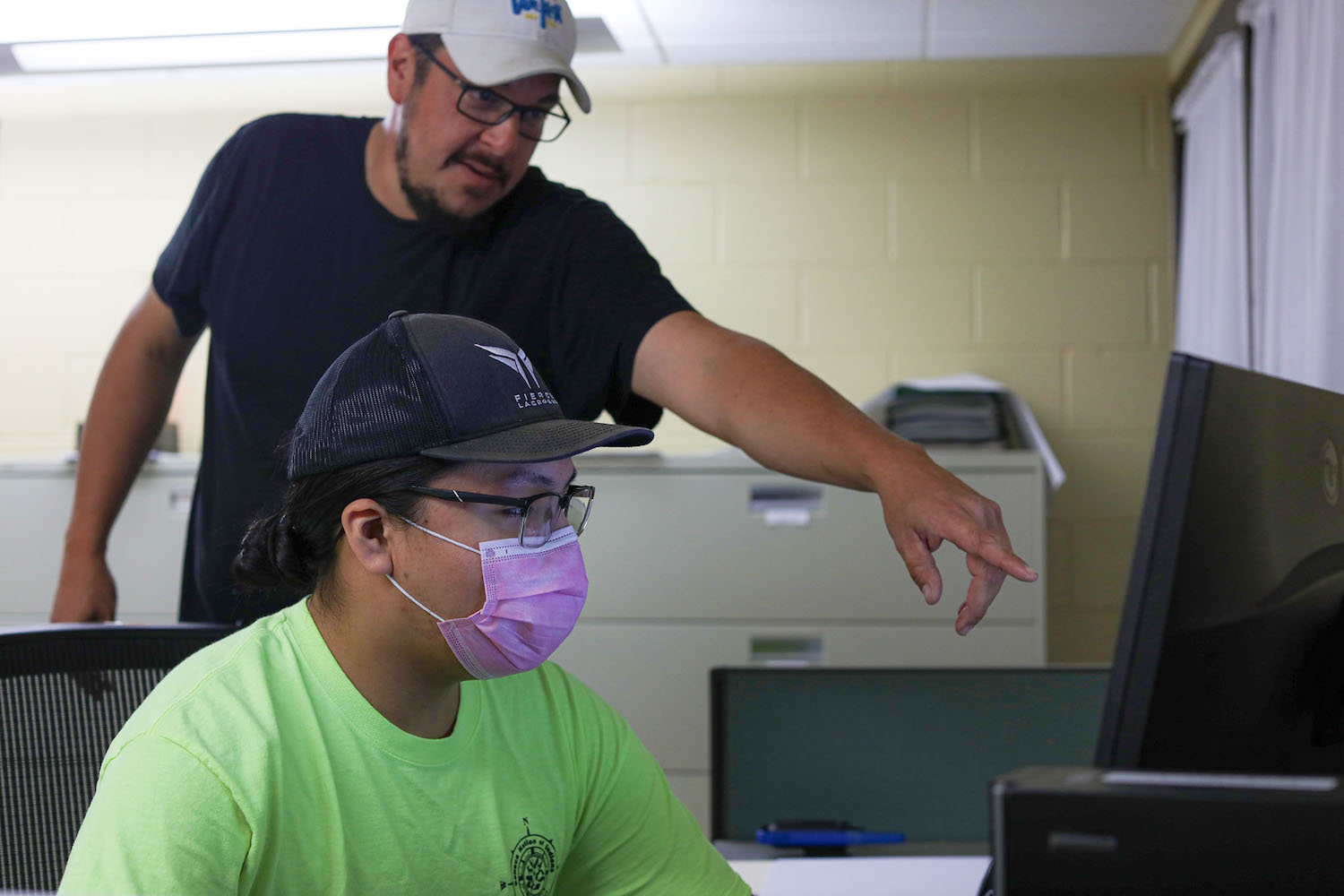
A Seneca Nation family. Tribally-owned businesses generate profits that flow directly to the Native Nation and fund the support services its members need.
Businesses looking to amplify their environmental, social and governance (ESG) goals should consider the added impact that comes from working with a tribally-owned business. The mission of a business owned by a Native Nation is to generate income that will improve the lives of its people. Every other for-profit business seeks to maximize value for its owners. If a tribally-owned business can serve your business just as well as another (or better!), your company will simply “do more good” by working with one.
Why Native Nations form businesses
There are 574 federally recognized Native Nations in the United States. Many have sovereign territories on which their members live. For some Native Nations, their territory consists of a sliver of their ancestral homeland; for others, their territory is nowhere near their ancestral homeland. Still others have no territory at all.
It is widely recognized that Native communities have not shared in the wealth generated from their lands. Native communities are also underserved compared to other communities in the United States. These factors have contributed to conditions where poverty is high, education levels are low, health disparities still exist, and opportunities are scarce. The reasons for this are complicated, generational and well-documented.
With few exceptions, Native Nations do not have tax revenue to fund the services they provide to their members. Instead, they need to generate other forms of income to provide for the health, safety, education and social support their community members need.
Increasingly over recent decades, Native Nations have established wholly-owned businesses to generate profits that flow directly to the Native Nation and fund the support services needed by its members. While many of these businesses have done well, the revenue they generate is still not enough for most Native Nations to provide the same services to their members that most other Americans get from their federal, state and local governments. Tribally-owned businesses are now expanding in the competitive marketplace, and there are more opportunities than ever to work with them.

What makes a tribally-owned business unique?
A tribally-owned business is a for-profit business owned directly by a Native Nation, and not by any specific shareholders. Profits flow directly to the Native Nation and are used by its government to directly fund services and support for its members. The organization I lead is one such business, owned by the Seneca Nation located in the Western New York region. I regularly say that while the mission of Seneca Holdings is to generate profits — like any other business — we operate more like a nonprofit than a for-profit entity. We know that every dollar that we earn, and every dollar that we save, goes directly back to the Seneca Nation.
There are many exceptional businesses owned by minorities, women, veterans and other disadvantaged individuals that are worth supporting. The difference, which you can decide for yourself how much to value, is that the mission of a tribally-owned business is to improve the lives of an entire community, particularly those in need. This is why we think of our organization as operating more like a nonprofit than a for-profit business.
There are also unique capabilities that tribally-owned businesses can provide their customers that may not be available to smaller businesses. Seneca Holdings, for example, leverages its capabilities across multiple industries to provide back-office support and financial stability that is more mature and robust than any of our individual businesses would have on its own.

ESG and tribally-owned businesses
The promise of ESG is that it creates an expectation that companies “do more good” while running their businesses. Decision-makers have many options for the partnerships they pursue and the suppliers they use. A genuine commitment to ESG entails considering the added impact that a tribally-owned business has on improving the lives of the Native community it serves.
In addition to the inherent “S” benefit, many tribally-owned businesses are focused on renewable energy projects and environmental sustainability that also address the “E” in ESG. In the clean energy space, there will be an increasing number of tribally-owned businesses looking to partner with larger companies that seek to amplify their ESG commitment.
There are multiple benefits to partnering with a tribally-owned business on a renewable energy project beyond just satisfying your company’s ESG goals. Partnering can also be good for your bottom line, as these businesses provide access to unique advantages conferred by the federal government. Incentives in the Inflation Reduction Act, the Infrastructure and Investment Jobs Act of 2021, the Justice40 Initiative, and Department of Energy grants and loan programs can all significantly reduce the cost of renewable energy projects.
You may also find that the kinds of people who choose to work for a tribally-owned business are more likely to earn your trust as a valued business partner. Those of us that do embrace the responsibility of representing the Native Nations we work for, and we are inspired by the meaningful contributions that our businesses can make. We are always looking for partners and clients that are inspired in the same way.
Images courtesy of the Seneca Media and Communications Center

Jeffrey Ellis, President, Seneca Environmental and Chief Executive Officer, Seneca Holdings. Jeff has held various roles since joining Seneca Holdings in 2013 and is now responsible for the overall growth and direction of the organization. He has a background in business strategy and technology consulting, most recently advising federal government clients in the Department of Defense. Jeff previously consulted for firms including Gartner and Deloitte, and practiced law at Skadden, Arps, Slate, Meagher & Flom LLP. He has an MBA from the Kellogg School of Management at Northwestern University, a JD from the Northwestern University School of Law, and a BA from the University of California, Los Angeles.














